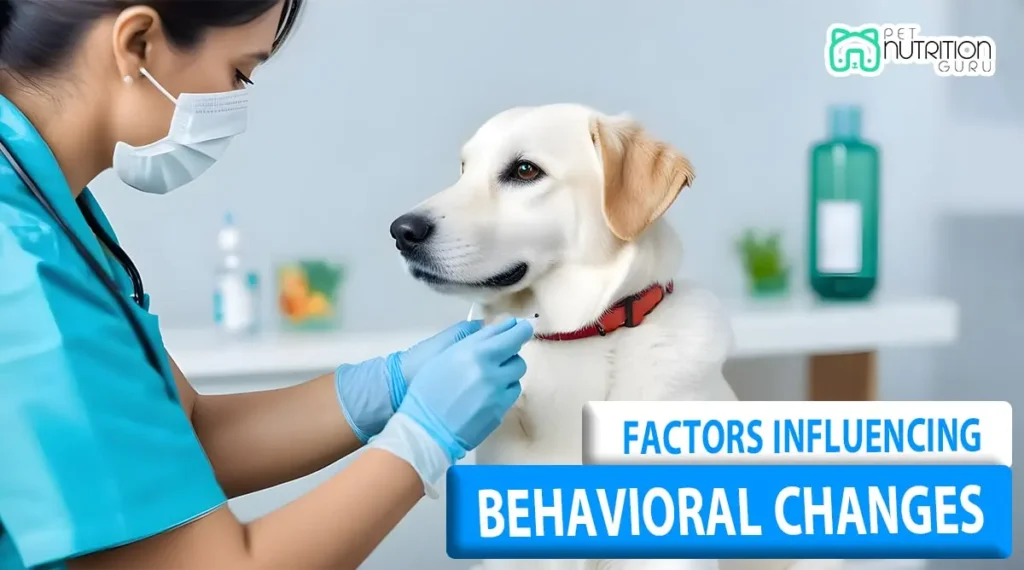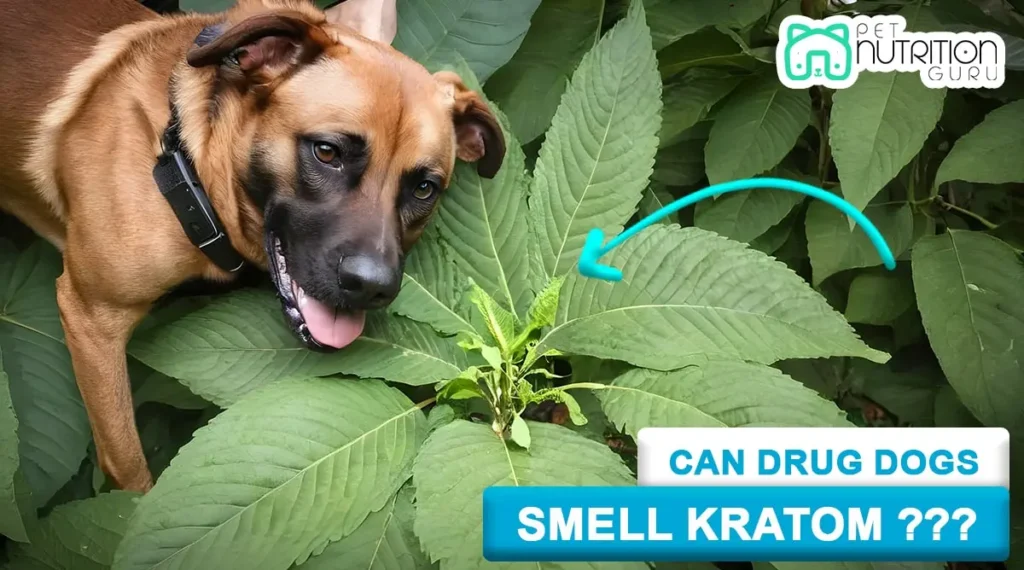Imagine the joy of bringing your furry friend home after a routine vaccination, only to notice subtle shifts in their behavior. As dog parents and devoted pet lovers, we can’t help but wonder: Why does this happen, and what lies behind Dog Behavior Changes? At Pet Nutrition Guru, we understand the concerns that arise when you’re Dog Behavior Change after Vaccination.
Why My Dog’s Behavior Change After Vaccination?
“Dog Behavior Change after Vaccination, typically nothing of concern. That is the natural response as the Dogs Acting Weird. After getting shots, dogs might feel tired and uneasy. They might also have a little fever, making them seem a bit “off.” This is normal – it means their immune system is working properly in response to the vaccine.”
In this article (Dog Behavior Change after Vaccination), we’ll explore the side effects of Vaccine Reactions in Dogs and Dog Behavior Changes. We will discuss comprehensively “Why Dogs Behaving Strangely” and know the possible causes of Vaccine Reactions in Dogs.
Factors Influencing Behavioral Changes:

There are some factors of Dog Behavioral Changes:
Biological Response: According to veterinary studies [National Institute of Health], a dog’s immune system undergoes a temporary adjustment post-vaccination. This biological response can influence behavior as the body adapts to the introduced antigens.
Stress and Anxiety: The experience of visiting the vet and receiving injections can be stressful for dogs. Research [PetMD] suggests that stress-induced Vaccine Reactions in Dogs are not uncommon after vaccination. Recognizing and alleviating stress is crucial in ensuring a smoother transition.
Signs and Symptoms of Behavioral Changes in Dogs
When your dog acts weird, it’s important to pay attention to the signs and symptoms they exhibit. Here are some common signs and symptoms of Dog Behavior changes:
- Changes in Eating Habits
- Changes in Sleep Patterns
- Aggressive or Unusual Behavior
- Excessive Licking or Scratching
To comfort your dog after a vaccination, you can:
- Ensure they have water and their favorite food.
- Refrain from patting or playing with your pet.
- Apply a warm compress (not too hot) to the vaccination site every 6 to 8 hours for about 15 minutes per session during the initial 24 hours after vaccination.
Storytelling:
Meet Max, a lively Labrador, who always greeted his owners with boundless enthusiasm. After a recent round of vaccinations, Max seemed more subdued and occasionally exhibited signs of unease.
Concerned, his owners discovered that these changes were part of a normal post-vaccination adjustment. With patience, love, and expert guidance from Pet Nutrition Guru, Max’s behavior gradually returned to its vibrant self.
Why is My Puppy Acting Weird?
There are a few things to consider if Dogs acting weird. The possible reasons are the following:
- Allergies
- Pain or Discomfort
- Infections or illnesses
- Hormonal imbalances
- Effects of Vaccines
Dog in Pain after Vaccination Shot:
Most pets might feel a bit sore after getting vaccinated, which is normal. If your pet seems uncomfortable, you can use Children’s Aspirin (NOT Tylenol!) to help ease any pain. For smaller dogs, we suggest using Children’s Aspirin.
How Pet Nutrition Guru Can Help:
At Pet Nutrition Guru, we prioritize the well-being of your pets. Our experts understand that dog behavior change after vaccination can be perplexing, and we’re here to guide you through the process.
From tailored nutrition plans to stress-relief strategies, our resources are designed to support both you and your furry friend during this transitional period.
20 Side Effects of Rabies Vaccine in Dogs
While serious side effects from pet vaccinations are very rare, they are important to watch out for. The most common is Dog Vomiting after Vaccine. The cause of Dog Behavior changes is the following:
- Hives
- Cough
- Fatigue
- Diarrhea
- Vomiting
- Paralysis
- Irritability
- Mild Fever
- Confusion
- Runny nose
- Face Swelling
- Fast Heartbeat
- Lack of Appetite
- Collapse or Fainting
- Swelling of the Joints
- Difficulty with moving
- Tightness in the Chest
- Lack or loss of Strength
- Difficulty with Swallowing
- Soreness at the site of injection
- Follow the vaccination schedule
Conclusion
As responsible dog owners, it’s crucial to be aware of the potential behavioral shifts following vaccinations. Knowledgeable, loving, and with the support of Pet Nutrition Guru, you can navigate this phase with confidence, ensuring your dog’s continued happiness and health.
Together, let’s celebrate the resilience of our canine companions and provide them with the care they deserve.
Disclaimer
This Article (Dog Behavior Change after Vaccination) contains essential information. We are not a veterinarian but we have Pet Dietary professionals. If your Dog discloses any indication of ailment, call your veterinarian.
Bear in mind that every Dog is Different, and if you have any worries regarding your Canine’s Health or practices, do not wait to seek specialist recommendations from your veterinarian.
If you want more Knowledge about Pets Behavior (Cats & Dogs), visit our Blog Section.
FAQs (Frequently Asked Questions)
Sometimes, after Vaccine Shots, dogs might not feel like eating for a little while. It’s usually nothing to worry about. Just make sure they have water and keep an eye on their eating habits. If they don’t eat much for more than a day or two, talking to your vet is a good idea.
Your dog is acting Strange today may be due to changes in routine, health issues, stress, or recent Rabies Vaccine. Observe closely, consider recent changes, and consult a veterinarian if concerns persist.
If your dog is only shaking, it might be a mild reaction to the vaccine. Mild fever and discomfort from the vaccination could cause shaking, and it usually resolves on its own in most cases.
After shots, dogs often feel a bit uncomfortable and tired. Sometimes, they might have a small fever as their body reacts to the vaccine. These mild symptoms are normal and usually go away in about a day or two.
Sometimes, your dog’s leg might hurt or swell after getting shots. This can lead to limping or rear-end paralysis, especially in dogs that got a Rabies shot. Rear-end paralysis means their back legs stop working due to a reaction.
Latest Articles
- Can Dogs Eat Soursop Fruit? Find Out the Truth Here
- Can Drug Dogs Smell Kratom? The Shocking Truth Revealed
- When Do Dogs Go into Heat after Having Puppies?
Subscribe to Pet Nutrition Guru
Subscribe below to receive expert pet care advice, pet wellness tips, and exclusive promotions.




